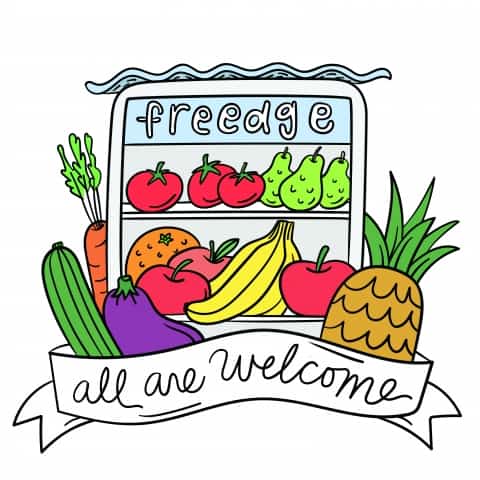A project arising from ENVS 401: Sustainability in Action is hoping to revive what was once a city-wide initiative here on campus. The group project, dubbed Freedom Fridge, is intended to start a movement by bringing a community fridge to the Agriculture Building.

Zach Rychlo, an arts and science student who is set to graduate with an environment and society degree, is part of the group that is working to bring this initiative to campus. Rychlo explains the history of community fridges in Saskatoon and the general idea of the project.
“This project originated before our class, and [the fridges] originated around the city. Basically, the project is to install a mini fridge in an area where the community can use it [and] take and leave food as they please for free. It’s a self-sustaining grassroots idea where we can reduce food waste and increase food security,” Rychlo said.
Before the project came to campus, the onus of maintaining a fridge’s cleanliness and quality of food fell upon the business that hosted the fridge. With other structures in play on the campus level, the project has run into one major roadblock, as Rychlo explains.
“There really has been one barrier that has stayed with us the whole time — and that’s just the barrier of liability and risk. We’ve spoken with the [Saskatchewan Health Authority], and we’ve emailed back and forth with the agriculture and bioresources dean, and their biggest issue is risk and liability,” Rychlo said.
Expanding on the nature of this roadblock, Rychlo provides the reasoning behind this concern as well as the group’s own feelings on the subject.
“Malicious intent — so somebody coming in and putting bad food in the fridge — or just food getting contaminated and us being at risk of liability,” Rychlo said. “We have personal opinions on this liability and risk, mainly because the whole project has been supported by The Donation of Food Act of 1995.”
This act protects those who donate or distribute food donations from being liable for their donations, with a few exceptions — including if the food is adulterated, rotten or otherwise unfit for human consumption and if the food was donated with malicious intent or reckless disregard for the safety of potential consumers.
Rychlo explains some of the measures the project would take in order to ensure that they avoid either of these conditions.
“We have come up with a plan to basically take food in before it goes into the fridge. We have Environmental and Bioresources Students Association volunteers in place that have agreed to do this — to look at the food before it goes in the fridge, put a stamp on it or a sticker or something, and then label it before it goes into the fridge,” Rychlo said.
In addition to these precautions, Rychlo states that the group also would not accept high-risk foods — like raw meat, fish and open dairy — and would caution those with allergies against using the fridge and make it known that the fridge should be used at one’s own risk.
Rychlo explains that the success of the project could circumvent a major issue in attempts to increase food security — the fact that many feel embarrassed to access food programs.
“It’s for everyone, and we would love for everyone to use it.”
—
Jack Thompson / Sports & Health Editor
Graphic: Jaymie Stachyruk